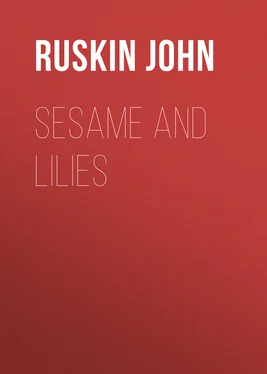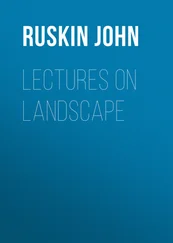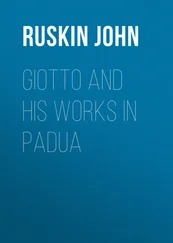John Ruskin - Sesame and Lilies
Здесь есть возможность читать онлайн «John Ruskin - Sesame and Lilies» — ознакомительный отрывок электронной книги совершенно бесплатно, а после прочтения отрывка купить полную версию. В некоторых случаях можно слушать аудио, скачать через торрент в формате fb2 и присутствует краткое содержание. Жанр: foreign_prose, literature_19, foreign_antique, на английском языке. Описание произведения, (предисловие) а так же отзывы посетителей доступны на портале библиотеки ЛибКат.
- Название:Sesame and Lilies
- Автор:
- Жанр:
- Год:неизвестен
- ISBN:нет данных
- Рейтинг книги:3 / 5. Голосов: 1
-
Избранное:Добавить в избранное
- Отзывы:
-
Ваша оценка:
- 60
- 1
- 2
- 3
- 4
- 5
Sesame and Lilies: краткое содержание, описание и аннотация
Предлагаем к чтению аннотацию, описание, краткое содержание или предисловие (зависит от того, что написал сам автор книги «Sesame and Lilies»). Если вы не нашли необходимую информацию о книге — напишите в комментариях, мы постараемся отыскать её.
Sesame and Lilies — читать онлайн ознакомительный отрывок
Ниже представлен текст книги, разбитый по страницам. Система сохранения места последней прочитанной страницы, позволяет с удобством читать онлайн бесплатно книгу «Sesame and Lilies», без необходимости каждый раз заново искать на чём Вы остановились. Поставьте закладку, и сможете в любой момент перейти на страницу, на которой закончили чтение.
Интервал:
Закладка:
(III.) I say you have despised Art! "What!" you again answer, "have we not Art exhibitions, miles long? and do we not pay thousands of pounds for single pictures? and have we not Art schools and institutions,—more than ever nation had before?" Yes, truly, but all that is for the sake of the shop. You would fain sell canvas as well as coals, and crockery as well as iron; you would take every other nation's bread out of its mouth if you could; 11not being able to do that, your ideal of life is to stand in the thoroughfares of the world, like Ludgate apprentices, screaming to every passer-by, "What d'ye lack?" You know nothing of your own faculties or circumstances; you fancy that, among your damp, flat, fat fields of clay, you can have as quick art-fancy as the Frenchman among his bronzed vines, or the Italian under his volcanic cliffs;– that Art may be learned, as book-keeping is, and when learned, will give you more books to keep. You care for pictures, absolutely, no more than you do for the bills pasted on your dead walls. There is always room on the walls for the bills to be read,—never for the pictures to be seen. You do not know what pictures you have (by repute) in the country, nor whether they are false or true, nor whether they are taken care of or not; in foreign countries, you calmly see the noblest existing pictures in the world rotting in abandoned wreck—(in Venice you saw the Austrian guns deliberately pointed at the palaces containing them), and if you heard that all the fine pictures in Europe were made into sand-bags to-morrow on the Austrian forts, it would not trouble you so much as the chance of a brace or two of game less in your own bags, in a day's shooting. That is your national love of Art.
(IV.) You have despised Nature; that is to say, all the deep and sacred sensations of natural scenery. The French revolutionists made stables of the cathedrals of France; you have made race-courses of the cathedrals of the earth. Your ONE conception of pleasure is to drive in railroad carriages round their aisles, and eat off their altars. 12You have put a railroad-bridge over the falls of Schaffhausen. You have tunnelled the cliffs of Lucerne by Tell's chapel; you have destroyed the Clarens shore of the Lake of Geneva; there is not a quiet valley in England that you have not filled with bellowing fire; there is no particle left of English land which you have not trampled coal ashes into 13—nor any foreign city in which the spread of your presence is not marked among its fair old streets and happy gardens by a consuming white leprosy of new hotels and perfumers' shops: the Alps themselves, which your own poets used to love so reverently, you look upon as soaped poles in a bear- garden, which you set yourselves to climb and slide down again, with "shrieks of delight." When you are past shrieking, having no human articulate voice to say you are glad with, you fill the quietude of their valleys with gunpowder blasts, and rush home, red with cutaneous eruption of conceit, and voluble with convulsive hiccough of self-satisfaction. I think nearly the two sorrowfullest spectacles I have ever seen in humanity, taking the deep inner significance of them, are the English mobs in the valley of Chamouni, amusing themselves with firing rusty howitzers; and the Swiss vintagers of Zurich expressing their Christian thanks for the gift of the vine, by assembling in knots in the "towers of the vineyards," and slowly loading and firing horse-pistols from morning till evening. It is pitiful, to have dim conceptions of duty; more pitiful, it seems to me, to have conceptions like these, of mirth.
Конец ознакомительного фрагмента.
Текст предоставлен ООО «ЛитРес».
Прочитайте эту книгу целиком, купив полную легальную версию на ЛитРес.
Безопасно оплатить книгу можно банковской картой Visa, MasterCard, Maestro, со счета мобильного телефона, с платежного терминала, в салоне МТС или Связной, через PayPal, WebMoney, Яндекс.Деньги, QIWI Кошелек, бонусными картами или другим удобным Вам способом.
1
Note this sentence carefully, and compare the 'Queen of the Air,' paragraph "Nothing that I ever said is more …"
2
2 Peter iii. 5-7.
3
Compare the 13th Letter in 'Time and Tide.'
4
Modern "Education" for the most part signifies giving people the faculty of thinking wrong on every conceivable subject of importance to them.
5
Inf. xxiii. 125, 126; xix. 49. 50.
6
Compare with paragraph "This, then, is what you have to do…"
7
See note at end of lecture. I have put it in large type, because the course of matters since it was written has made it perhaps better worth attention.
8
Respecting the increase of rent by the deaths of the poor, for evidence of which see the preface to the Medical Officer's report to the Privy Council, just published, there are suggestions in its preface which will make some stir among us, I fancy, respecting which let me note these points following:-
There are two theories on the subject of land now abroad, and in contention; both false.
The first is that, by Heavenly law, there have always existed, and must continue to exist, a certain number of hereditarily sacred persons to whom the earth, air, and water of the world belong, as personal property; of which earth, air, and water, these persons may, at their pleasure, permit, or forbid, the rest of the human race to eat, to breathe, or to drink. This theory is not for many years longer tenable. The adverse theory is that a division of the land of the world among the mob of the world would immediately elevate the said mob into sacred personages; that houses would then build themselves, and corn grow of itself; and that everybody would be able to live, without doing any work for his living. This theory would also be found highly untenable in practice.
It will, however, require some rough experiments and rougher catastrophes, before the generality of persons will be convinced that no law concerning anything—least of all concerning land, for either holding or dividing it, or renting it high, or renting it low—would be of the smallest ultimate use to the people, so long as the general contest for life, and for the means of life, remains one of mere brutal competition. That contest, in an unprincipled nation, will take one deadly form or another, whatever laws you make against it. For instance, it would be an entirely wholesome law for England, if it could be carried, that maximum limits should be assigned to incomes according to classes; and that every nobleman's income should be paid to him as a fixed salary or pension by the nation; and not squeezed by him in variable sums, at discretion, out of the tenants of his land. But if you could get such a law passed to-morrow, and if, which would be farther necessary, you could fix the value of the assigned incomes by making a given weight of pure bread for a given sum, a twelvemonth would not pass before another currency would have been tacitly established, and the power of accumulated wealth would have re-asserted itself in some other article, or some other imaginary sign. There is only one cure for public distress—and that is public education, directed to make men thoughtful, merciful, and just. There are, indeed, many laws conceivable which would gradually better and strengthen the national temper; but, for the most part, they are such as the national temper must be much bettered before it would bear. A nation in its youth may be helped by laws, as a weak child by backboards, but when it is old it cannot that way strengthen its crooked spine.
Читать дальшеИнтервал:
Закладка:
Похожие книги на «Sesame and Lilies»
Представляем Вашему вниманию похожие книги на «Sesame and Lilies» списком для выбора. Мы отобрали схожую по названию и смыслу литературу в надежде предоставить читателям больше вариантов отыскать новые, интересные, ещё непрочитанные произведения.
Обсуждение, отзывы о книге «Sesame and Lilies» и просто собственные мнения читателей. Оставьте ваши комментарии, напишите, что Вы думаете о произведении, его смысле или главных героях. Укажите что конкретно понравилось, а что нет, и почему Вы так считаете.












